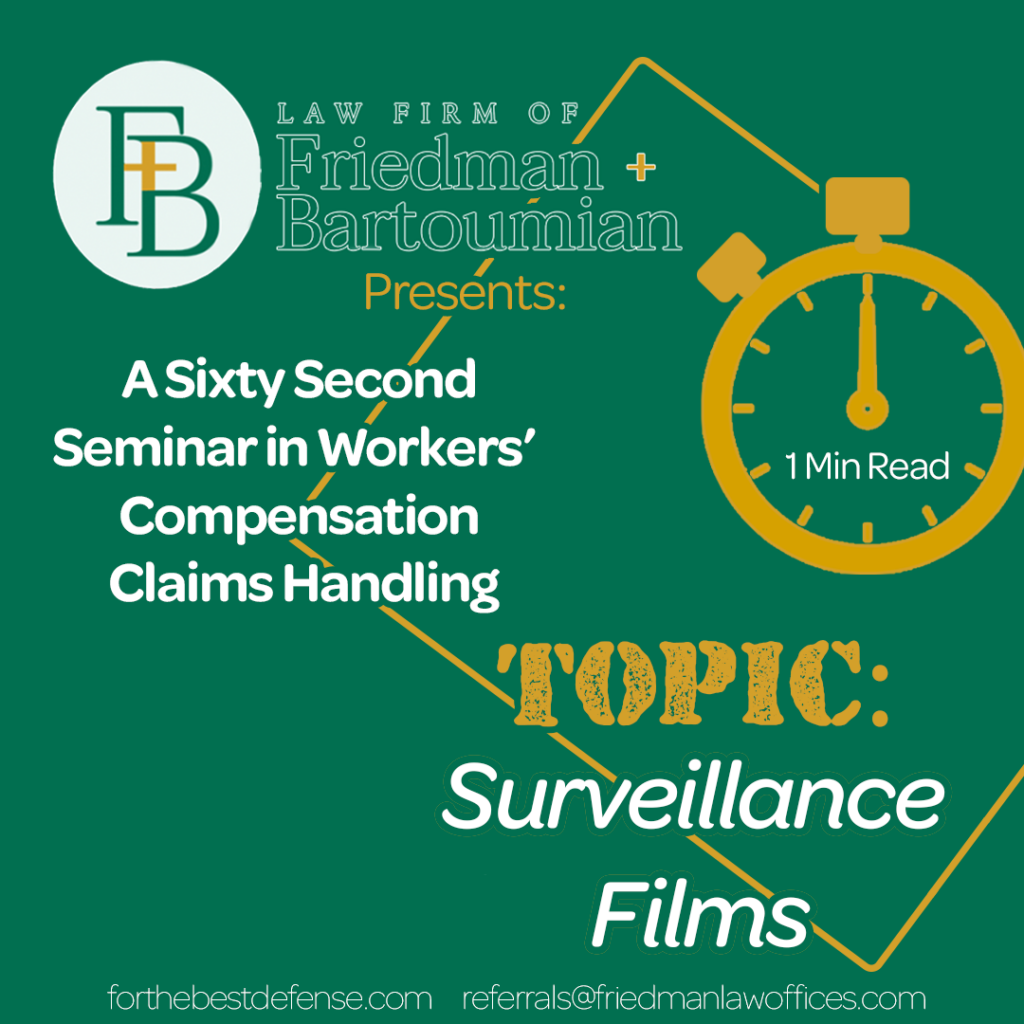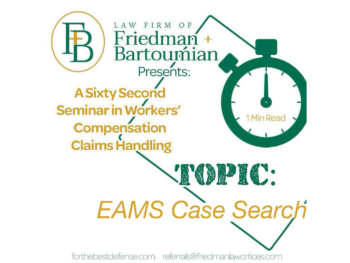
It is quite common in a litigated claim for an applicant’s attorney to demand disclosure and service of surveillance videos. Such a demand is usually found in the attorney’s Notice of Representation, which advises the employer that the applicant is now represented by legal counsel. In today’s blog our readers will learn that even when a demand for disclosure and service of surveillance evidence is issued, it does not necessarily mean the employer must comply.
First of all, if the employer does not plan to show the surveillance to a physician or introduce them into evidence, the films do not have to be served and their existence does not have to be divulged. On the other hand, if they are to be shown to an AME/QME, then they must be made available to opposing counsel at least 20 days beforehand. Also, if the surveillance is to be introduced into evidence at the WCAB, such as at trial, its existence must be disclosed no later than the MSC date. However, recently, some judges have held that failing to divulge the existence of the films until the MSC is too late. That’s because when surveillance is first divulged at an MSC, it usually catches the applicant’s attorney by surprise and fails to provide sufficient time for counsel to gather admissible rebuttal evidence, since discovery closes that day. Therefore, many judges require that notice of films be divulged as soon as possible, and prior to the MSC.
Sometimes a judge will keep discovery open for a specified period of time for the sole purpose of allowing an applicant’s attorney the necessary time to gather rebuttal evidence. On the other hand, many judges follow the letter of the law and cut off discovery at the MSC, but disqualify the films as surprise evidence. Therefore, if an employer plans on using surveillance either at an MSC or at trial, it is strongly recommended that disclosure be made well before the MSC to prevent the evidence from being disallowed.
Examiners frequently ask us the same questions about film disclosure. One common inquiry is, “Must films be divulged prior to or during an applicant’s deposition?” The answer to that question is a resounding “No.” In a panel decision, the WCAB stated that an employer is not obligated at or during a deposition to disclose the existence of surveillance. It further stated, “At his deposition, the least that an applicant should be required to do is to state the truth as to his physical abilities, and his duty to state the truth should not depend on whether the defendant has (or) has not observed and made a record of his daily activities.”
Another frequently asked question concerns the admissibility of surveillance evidence conducted after an MSC and the corresponding closure of discovery. Such films might be allowed into evidence, but only after being scrutinized by the judge to determine if the evidence could have been obtained prior to the MSC. The onus is placed on the employer to demonstrate that the evidence was not available or could not have been discovered through the exercise of due diligence prior to the closure of discovery. For example: If after an MSC a disabled employee began working at a new job, then of course films of the applicant working at this new job could not have been obtained before the close of discovery. However, if applicant had been employed for several months prior to the MSC, then the judge will likely find that the employer/claims administrator failed to act with due diligence. In situations like this, judges are placed in a difficult position. In theory, they should not excuse a claims administrator’s lack of due diligence, yet they also cannot allow an applicant to perpetrate fraud with impunity. As a general rule, the greater the perceived fraud, the more latitude the judge will give when a claims administrator wants to introduce surveillance evidence obtained after the closure of discovery at an MSC.


 Medical Confidentiality/HIPAA: A Sixty-Second Seminar in Workers’ Compensation Claims Handling
Medical Confidentiality/HIPAA: A Sixty-Second Seminar in Workers’ Compensation Claims Handling
Leave a Reply